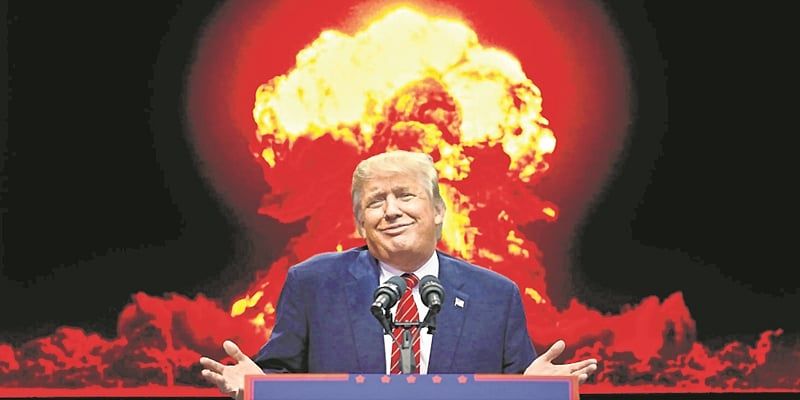
US President Donald Trump on Saturday (February 1) imposed steep tariffs on imports from Canada, Mexico and China. All of these countries are major trade partners of the US. Through an executive order, Trump imposed 25 per cent tariff on Canada and Mexico and 10 per cent on goods imported from China.
With the latest move, Trump has made good on his promise he made months ago. Trump has been maintaining that tariffs on products from these countries will make US-made products more competitive in domestic market. Will this happen? Read on.
What Is A Tariff?
Tariff simply refers to a tax that a country levies, in this case, on imports from Canada, Mexico and China. Imposition of tariffs means that import of goods from these countries would be costlier. These products thereby would be more expensive in US domestic market, possibly putting them at a disadvantage.
United States imports huge amount of goods from other countries. It is the largest goods importer in the world.
In the year 2022 along the imports amounted to USD 3.2 trillion.
What May Happen In US Domestic Market After Imposition of Tariffs?
As a result of possible reduction in imports, manufacturers in the US will feel the pressure to make more goods domestically to make up for the shortfall. With increasingly intertwined economies, many countries across the world have been content with importing goods which its own industries cannot adequately manufacture.
It is predicted that in case of a major shortfall, US industries may not be able to suddenly increase production of goods.
This may result in further scarcity of products and finally, US consumer may have to face inflation.
In other words, US consumer may have to foot the bill for situation arising out of Trump's decision to import tariffs.
Does Trump Have Authority To Impose Tariffs Without nod from US Congress?
Yes, the federal laws in US give US president a power to impose broad tariffs without nod from US Congress.
International Emergency Economic Powers Act (IEEPA) empowers the president to declare national economic emergency and enact his tariffs under this framework .
Also Section 232 of Trade Expansion Act allows the president to impose tariffs on industries. Trump has used this provision in the year 2018 against Canada and Mexico.
Will Trump's Latest Move Start Trade-War?
Possibly. The countries are not expected to take imposition lying down. At the time of publishing of this story, Mexico and Canada had hit back at the US with tariffs of their own. Although this is an early stages in this spat, the issue seems ripe for tit-for-tat measures. China did not act immediately after Trump imposed tariffs.